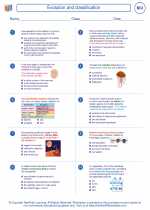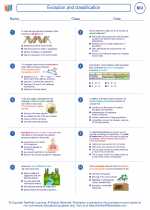Gas in Biology
In biology, the term "gas" refers to the state of matter that is a part of the Earth's atmosphere and plays a crucial role in various biological processes. Gases such as oxygen, carbon dioxide, and nitrogen are essential for the survival of living organisms. Understanding the properties and functions of these gases is important in the study of biology.
Properties of Gases
1. Expansion: Gases have no fixed shape or volume and expand to fill the space available to them.
2. Compressibility: Gases can be compressed into a smaller volume under increased pressure.
3. Diffusion: Gases have the ability to mix and spread out evenly in a given space.
4. Low Density: Gases have low density compared to liquids and solids.
Biological Importance of Gases
Oxygen (O2): Oxygen is essential for cellular respiration, the process by which cells convert oxygen and glucose into energy, carbon dioxide, and water. It is also necessary for the survival of most organisms, as it is used for the production of ATP, the energy currency of cells.
Carbon Dioxide (CO2): Carbon dioxide is a byproduct of cellular respiration and is used by plants during photosynthesis to produce glucose and oxygen. It also helps regulate the pH of the blood in animals.
Nitrogen (N2): Nitrogen is an essential component of proteins and nucleic acids, which are vital for the growth and development of living organisms.
Gas Exchange in Organisms
Gas exchange is the process by which gases are transported into and out of the body. In humans, this occurs in the respiratory system, where oxygen is inhaled into the lungs and carbon dioxide is exhaled out of the body. In plants, gas exchange occurs through small openings called stomata on the leaves, allowing for the uptake of carbon dioxide and the release of oxygen during photosynthesis.
Study Guide
1. Define the term "gas" and explain its properties.
2. Discuss the biological importance of oxygen, carbon dioxide, and nitrogen.
3. Explain the process of gas exchange in humans and plants.
4. Compare and contrast the properties of gases with those of solids and liquids.
Understanding the role of gases in biological processes is fundamental to grasping various concepts in biology, including respiration, photosynthesis, and the functioning of living organisms.
[Gas] Related Worksheets and Study Guides:
.◂Biology Worksheets and Study Guides High School. Evolution and classification

 Worksheet/Answer key
Worksheet/Answer key
 Worksheet/Answer key
Worksheet/Answer key
